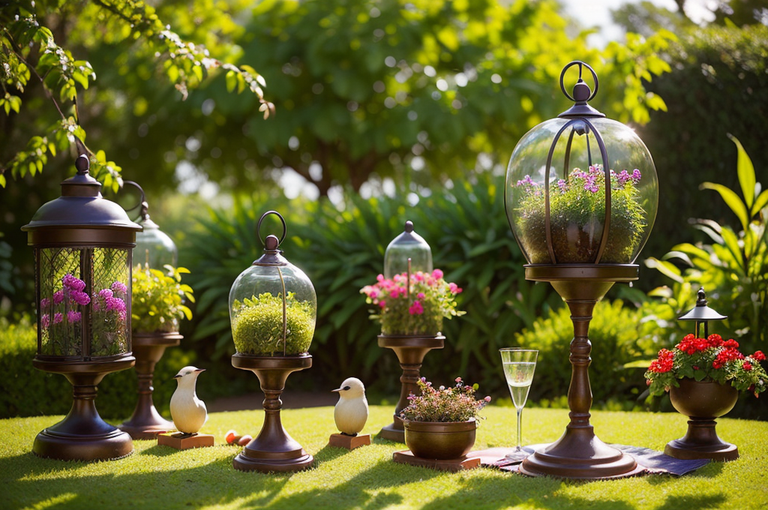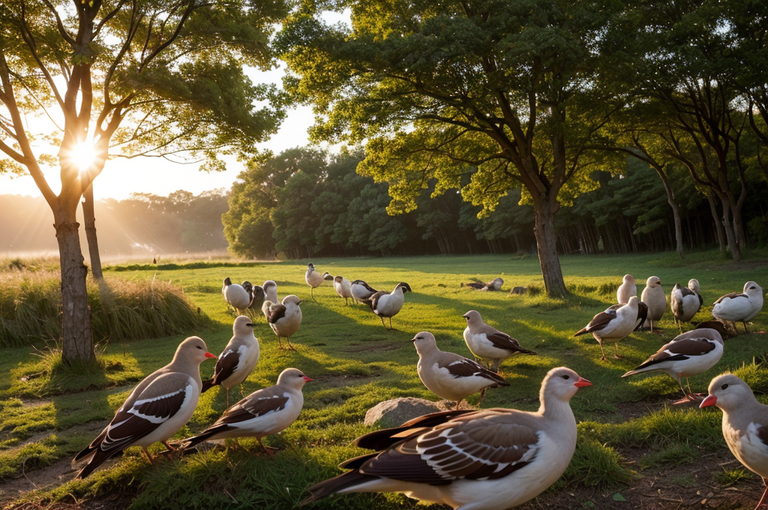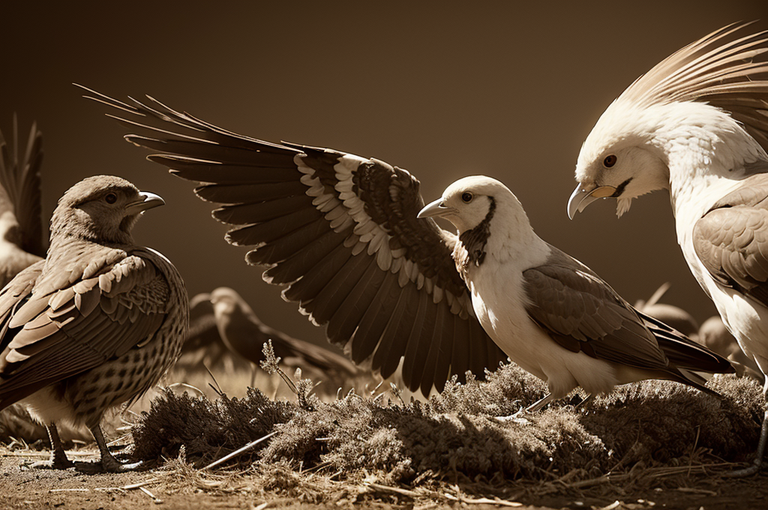Feeding Our Feathered Friends: The Responsible Guide to Duck Nutrition and Environmental Impact

Feeding ducks responsibly is crucial to their health and the environment. Avoid bread and opt for healthier alternatives such as bird seed, sweetcorn and rice. Be mindful of the environmental impact of feeding techniques and choices.
Responsible Feeding of Ducks
Just as morning sun rays pull me from slumber, luring me to embark on another day of delightful avian observations, my thoughts focus on our feathered friends. Today, we touch upon a subject dear to my heart: responsible feeding of ducks. It’s about ensuring that our quacking companions maintain a balanced diet and avoid the unfortunate consequences of overfeeding.
Importance of a Balanced Diet for Waterfowls
It reminds me of a peculiar note from my informal studies: A duck munching on a piece of bread is an idyllic scene, often etched onto our childhood memories. It warmly bobbed up in my mind one day, much like the ducks on a tranquil pond. However, the scientific truth behind this tableau is disconcertingly different. Bread, believe it or not, is nutritionally insufficient for our waterfowls. It provokes health disorders that silently lurk beneath their glossy feathered surfaces. It denies them the option of seeking out healthier food alternatives. Instead, consider bird seed a far healthier option to free our ducks to sing wild bird sing at their fullest health.
Consequences of Overfeeding and Responsible Feeding Practices
Overfeeding ducks not only tips their nutritional balance but can also trigger serious health concerns. Too much of a good thing, in this case, is not great it’s a mildly amusing fact that ducks and humans share this trait! Overfed ducks often fall prey to malnutritional issues, and in severe cases, it may even cripple their ability to fly. So, how does one feed fish eating ducks responsibly and ensure a healthier diet? A cardinal rule of mine is to put the bird seeds on the land itself, steering clear of water pollution.
The Adverse Effects of Feeding Ducks Bread
Feeding ducks white bread, much like treating yourself to a sugary donut, can be a simple joy. But keep in mind that much like that donut to you, bread poses a serious health risk to ducks — it’s filling but not nutritious. It’s tempting to overlook the complexity hidden beneath their charming waddles. In truth, ducks require a diet more nuanced than mere bread, so it’s our responsibility as nature lovers to abide by it.
Feeding waterfowls responsibly is not a chore but a privilege, a harmonious orchestra where we, the conductors, ensure that every quacking bill gets the right sustenance. It’s our chance to allow every duck to sing wild bird sing in full health and delight. Now that’s a tune worth repeating!

Suitable Food for Ducks
As dawn breaks, I often find myself enchanted by the ducks near my home, a poetic blend of scientific curiosity and child like wonder at nature’s marvels. More often than not, I ponder on what suitable food these darling ducks consume.
Variety in the duck diet: bird seed, sweetcorn, lettuce, and more
There’s an intriguing variety in the duck diet that goes beyond the cliched bread crumbs. From bird seed, lettuce, defrosted peas to sweetcorn there’s a veritable feast for our feathered friends. Yes, sing wild bird sing jacqueline omahony, even a duck’s diet has its symphony, comprised of diverse food sources such as oats, seeds, rice, and more, a testament to nature’s abundance!
The importance of bird seed in a duck’s diet.
A very significant note in this symphony is bird seed. Not merely a convenient fetch from the store, bird seed is chock full of vitamins, minerals, and nutrients that ducks require for their well being. Considerably similar to their natural diet in the wild, bird seed ensures that our beloved ducks aren’t missing out on any necessary nutrition.
The feasibility and convenience of utilizing pre-packaged foods for ducks
And then there are specially designed pre packaged foods like Quack Snacks. A feast for a duck, it’s plastic free, portion controlled, and a pleasing convenience for us duck feeders! It offers a hassle free solution to our quests for suitable duck food.
The secret to healthy and happy ducks lies in knowledge about their nutritional requirements. Feeding them the right food is our simple yet profound way of giving back. After all, nothing compares to the joy of watching a satiated duck swimming away contentedly after a nourishing meal!

Foods to Avoid for Ducks
A picnic by the lake might appear incomplete without tossing a few crumbs to our quacking counterparts in the water. Over the years, however, I have come to understand the complex dietary restrictions of ducks. While one might ponder — can ducks eat wild bird feed? — certain foods, undeniably, are harmful to these charming creatures and should be avoided.
Overview of Harmful Duck Foods and their Consequences.
There is a cloud of uncertainty hovering over suitable foods for ducks, but let’s prioritize clarity above confusion. Foods such as bread, crisps, popcorn, cornflakes, citrus fruits, onions, spinach, and avocados, are perilous for our feathered friends. Consumption of these can lead to a plethora of health issues, including but not limited to nutritional deficiencies, weight gain, choking, decay, disrupted egg production, diarrhea, vomit, hemolytic anemia, respiratory ailments, and heart failure.
The Peril of Bread for Ducks
Take bread, for instance—a typical offering to ducks in urban ponds. It might be equivalent to indulging in junk food for us; seemingly satisfying but nutritionally deficient. More so, it can engender a variety of health complications, turning a bread crumb laden environment into a treacherous terrain for ducks.
Why Other Foods are Detrimental for Ducks
Every morsel ingested by ducks has the potential to influence their health—either nourishing or impairing. Foods like crisps and cornflakes, though loved by us human folk for their delightful crunch, could lead to choking in ducks. On the other hand, citrus fruits, onions, and spinach might introduce harmful elements into their system, disrupting their bodily functions in unexpected ways.
Understanding what ducks should avoid eating is a step towards respecting and participating in the harmonious balance of the natural world. As we redefine our bond with these charming water birds, we come to realize that the question isn’t merely — can ducks eat wild bird feed? — but rather, what can we do to preserve the wellbeing of every creature in our shared environment.

Environmental Impact due to Duck Feeding Practices
When feeding our feathery friends in the park, not many ponder over the environmental implications. If you’ve ever wondered can ducks eat wild bird food? the simple answer is, yes, but there’s more to consider.
Impact of Discarded Food on the Environment
Discarded remnants of food can attract vermin and bacteria, significantly upsetting the ecosystem. It’s not just about the type of food, it’s about where and how we leave it. Hence, even innocuous seeming wild bird food can have stark repercussions when not managed correctly.
Implications of Overpopulation and Habitat Damage
Excessive feeding can foster overpopulation. It’s a common sight, ducks crowding over a heap of bread crumbs. This unnatural abundance of food can lead to overcrowding, with weaker birds often left bereft. Further, it can also result in habitat damage.
Reduction of Pollution through Responsible Feeding
Not all is doom and gloom though, responsible feeding can help reduce pollution. Feeding seeds on land reduces the chance of it settling in and dirtying water bodies such as lakes, ponds, and streams. This aids in maintaining a healthy habitat.
As caretakers of the avian world and observers of their fascinating lives, it’s incumbent upon us to ensure the survival and thriving of these beautiful creatures. Be it the humble ducks or majestic eagles, our actions determine their fate. Moderate and sensible feeding practices are a small step in the right direction.
Key Takeaways
Peering into our feathered world with mindful watchfulness reveals the importance of extending our responsibilities to ducks one of nature’s charming aquatic wonders. I’ve watched as people, infused with the joy of their company, feed them without knowing the potential harm they could inflame. Remember, wild ducks have complex dietary needs, much like the songbird protagonist of Jacqueline Omahony’s masterpiece Sing Wild Bird Sing, whose diet is meticulously tailored to its needs.
Reflecting on my father’s teachings again, he would often say, ”To care for the environment is to cherish every life within it.” This significant wisdom anchors me when considering the best practices for feeding ducks. Bread, commonly offered to ducks, is not suitable for their diet. Opt for healthier alternatives such as bird seeds, sweetcorn, lettuce, defrosted frozen peas, oats and even rice. These foods replicate a duck’s wild diet more closely, ensuring they stay healthy, much like the birds serenaded in Sing Wild Bird Sing.
The question often pops up can ducks eat wild bird feed? Yes, ducks can eat wild bird food, but remember, not all feed is created equal always read labels and opt for organic, non GMO selections where possible. Mindful feeding practices not only ensure the ducks eat healthily, but also help maintain our shared habitats’ balance.
Did you know food that lingers on the ground eventually decomposes, potentially sparking a rise in harmful bacteria and attracting unwanted pests? Excessive discarded feed could transform our peaceful parks into breeding grounds for disease. It’s crucial then, as Penelope Callaghan lover of all avian creatures to approach duck feeding from an environmental standpoint.
As a final word of caution, remember to keep the quantities small. Overfeeding and discarded food contribute to pollution, an issue we’re all part of. So, the next time you decide to feed ducks, whether with commercial wild bird food or healthier alternatives, remember moderation is the key. Be it the swift swallows of summer or the ducks adorning our ponds, every creature deserves our mindful consideration. As responsible stewards, it’s our duty to ensure the magic of wild birds continues to illuminate our world.


